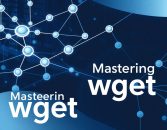The Digital Gold Rush: Understanding Web Scraping in the Modern Era
Imagine having the ability to extract valuable information from any website, transforming raw digital content into actionable insights. Web scraping represents more than just a technical skill—it‘s a strategic approach to understanding and leveraging online data in an increasingly complex digital landscape.
The Origins of Web Scraping: A Historical Perspective
Web scraping didn‘t emerge overnight. Its roots trace back to the early days of the internet when researchers and technologists sought ways to automate data collection. Initially, web scraping was a rudimentary process involving manual HTML parsing and basic screen-scraping techniques. As websites became more complex and dynamic, the techniques evolved, giving birth to sophisticated libraries and frameworks.
Technical Foundations: What Makes Web Scraping Possible?
At its core, web scraping is an intricate dance between HTTP requests, HTML parsing, and data extraction. Python has emerged as the premier language for this task, offering a robust ecosystem of libraries that make web scraping not just possible, but elegant and efficient.
The Python Web Scraping Toolkit
When you embark on a web scraping journey, you‘ll primarily work with three fundamental libraries:
- Requests: The gateway to retrieving web content
- BeautifulSoup: The master of HTML parsing
- Selenium: The tool for handling dynamic, JavaScript-rendered websites
Each library serves a unique purpose, and understanding their strengths is crucial to building powerful web scraping solutions.
Requests: Your HTTP Request Maestro
import requests
def fetch_webpage(url):
try:
response = requests.get(url, headers={‘User-Agent‘: ‘Custom Scraper‘})
response.raise_for_status()
return response.text
except requests.RequestException as e:
print(f"Error fetching webpage: {e}")
return NoneThis simple function demonstrates how Requests abstracts the complexity of making HTTP requests, handling redirects, and managing potential errors.
BeautifulSoup: Navigating HTML‘s Complexity
from bs4 import BeautifulSoup
def parse_html_content(html_content):
soup = BeautifulSoup(html_content, ‘html.parser‘)
# Extract specific elements with precision
titles = soup.find_all(‘h2‘, class_=‘article-title‘)
return [title.text for title in titles]BeautifulSoup transforms raw HTML into a navigable, searchable structure, allowing you to extract data with surgical precision.
Advanced Scraping Techniques: Beyond Basic Extraction
Handling Dynamic Websites with Selenium
Modern websites often render content dynamically using JavaScript, which traditional scraping methods can‘t handle. Selenium bridges this gap by simulating a real browser environment.
from selenium import webdriver
from selenium.webdriver.common.by import By
from selenium.webdriver.support.ui import WebDriverWait
from selenium.webdriver.support import expected_conditions as EC
def scrape_dynamic_content(url):
driver = webdriver.Chrome()
driver.get(url)
# Wait for dynamic content to load
dynamic_elements = WebDriverWait(driver, 10).until(
EC.presence_of_all_elements_located((By.CLASS_NAME, ‘dynamic-content‘))
)
extracted_data = [element.text for element in dynamic_elements]
driver.quit()
return extracted_dataNavigating Legal and Ethical Boundaries
Web scraping exists in a complex legal and ethical landscape. While data is technically accessible, not all websites welcome automated extraction. Always consider these critical factors:
- Review the website‘s
robots.txt - Check Terms of Service
- Implement respectful scraping practices
- Use rate limiting to avoid overwhelming servers
Proxy Management and IP Rotation
To prevent IP blocking and distribute requests effectively, implement a robust proxy rotation strategy:
import requests
from itertools import cycle
class ProxyManager:
def __init__(self, proxy_list):
self.proxies = cycle(proxy_list)
def get_proxy(self):
return next(self.proxies)
def make_request(self, url):
proxy = self.get_proxy()
try:
response = requests.get(url, proxies={‘http‘: proxy, ‘https‘: proxy})
return response
except requests.RequestException:
return NonePerformance Optimization Strategies
Efficient web scraping isn‘t just about extracting data—it‘s about doing so quickly, reliably, and without unnecessary resource consumption.
Concurrent Scraping with Threading
import concurrent.futures
import requests
def fetch_url(url):
try:
response = requests.get(url)
return response.text
except requests.RequestException:
return None
def concurrent_scrape(urls):
with concurrent.futures.ThreadPoolExecutor(max_workers=10) as executor:
results = list(executor.map(fetch_url, urls))
return resultsReal-World Applications and Case Studies
Web scraping transcends mere data collection. Industries like market research, competitive intelligence, and academic research rely on these techniques to gather insights quickly and efficiently.
Market Research Scenario
Imagine tracking product prices across multiple e-commerce platforms. A well-designed scraper can:
- Monitor price fluctuations
- Identify trending products
- Analyze competitor strategies
- Generate comprehensive market reports
Emerging Trends and Future Directions
The web scraping landscape continues to evolve. Machine learning integration, more sophisticated anti-detection techniques, and increased focus on ethical data collection are shaping the future of web scraping.
Predictive Challenges
As websites become more complex and implement advanced bot detection mechanisms, scraping tools must become equally sophisticated. Expect to see:
- AI-powered scraping adaptation
- More nuanced browser fingerprinting techniques
- Enhanced proxy and anonymization strategies
Conclusion: Your Web Scraping Journey
Web scraping is both an art and a science. It requires technical skill, strategic thinking, and an understanding of complex digital ecosystems. By mastering these techniques, you transform from a passive data consumer to an active information architect.
Remember, great web scraping isn‘t about extracting everything—it‘s about extracting what matters, ethically and efficiently.
Continuous Learning Resources
- Python Documentation
- Web Scraping Forums
- GitHub Open Source Projects
- Online Courses and Tutorials
Your journey into web scraping has just begun. Embrace the complexity, respect the data, and never stop learning.





